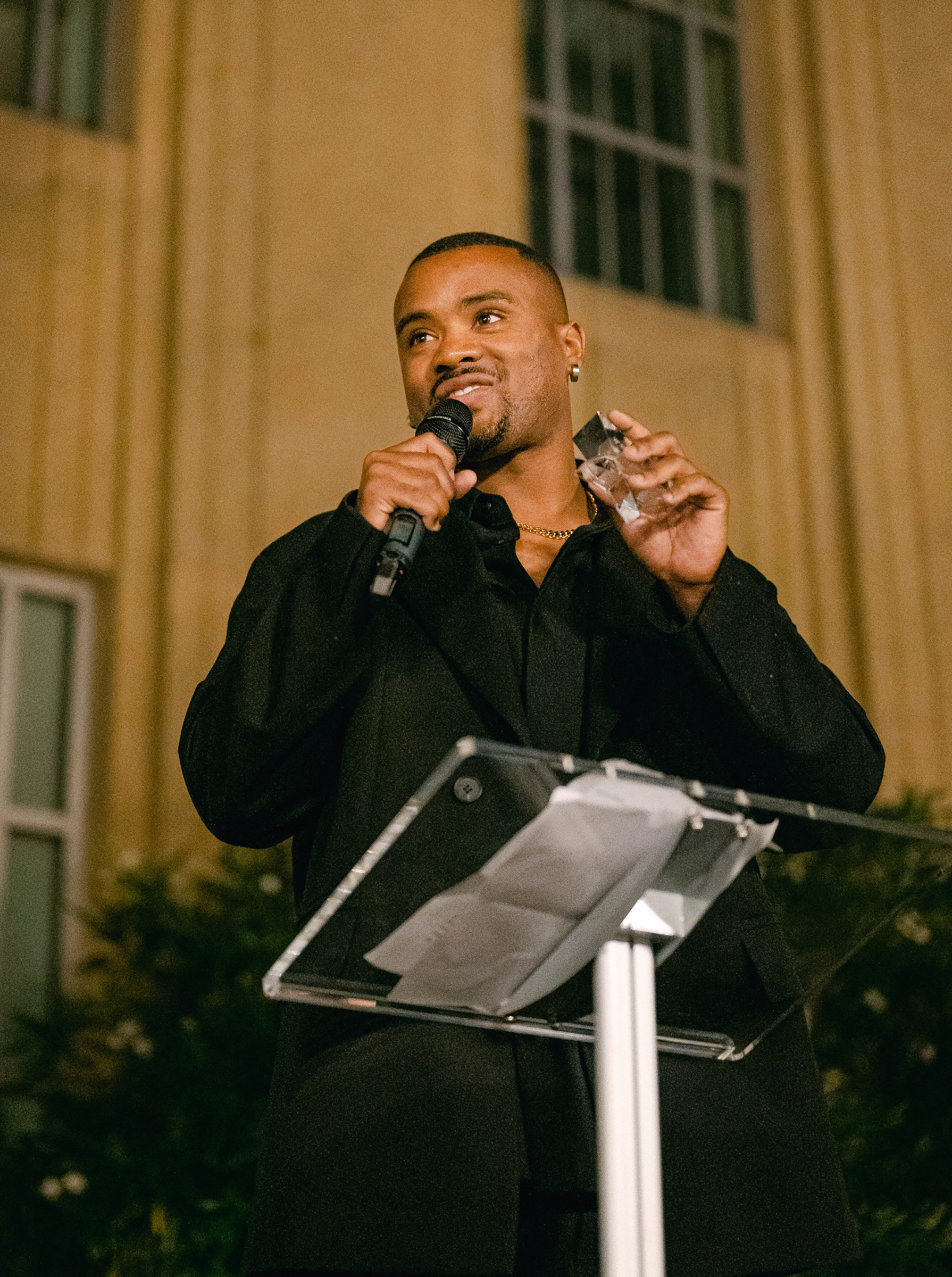
- Film
Edward Buckles Jr.: “Katrina Babies” Filmmaker Receives Big Hometown Honor
Last week, 30-year-old Edward Buckles Jr. received the Rising Star Award from his hometown at the New Orleans Film Society. This adds to the young filmmaker’s already impressive list of accolades, but this one that has a special and emotional meaning.
“I am delighted and proud to present a brand-new award tonight that the New Orleans Film Society created this year”, began actress Lynn Whitfield (Golden Globe-nominee for The Josephine Baker Story) and herself a resident of the city.
“Our first ever recipient is a son of New Orleans. When he was 13 years old, Hurricane Katrina hit and – like for so many of us – changed his life forever. Unlike most of us, though, he got to tell his and his friends’ and family’s story to the biggest audience imaginable”, she continued, referring to Katrina Babies, the documentary streaming on HBO.
On the morning of August 29, 2005, Edward Buckles Jr. was just getting up in his family’s home in the Gentilly neighborhood, not too far from the now infamous Lower Ninth Ward, when his mother decided everyone had to pack up and get in the car to leave the city. The Buckles drove two hours west to Lafayette, escaping the devasting storm, but forced to live there for the next two years.
The aftermath was far worse than the storm itself and stayed with the teenager even after he graduated high school, went to college, studied film and worked as a digital media instructor at Edna Karr High School, his alma mater. It was then that he decided he had to tell his and his contemporaries’ story.
At the beginning of his documentary, Buckles states an undeniable truth: when disaster strikes in America, the last thing anyone thinks or cares about is Black children. “Often, in disasters, tragedies and trauma kids are an afterthought, and especially when it comes to black youth. Most of the time ‘later’ never comes for making sure that they’re ok. They’re forced to just get over it. But they’re not getting over it, they’re just suppressing it. We thought that we’re ok because we’d never talked about it, no one had ever checked on us and made it a big deal. But once we got older, trauma began to surface.”
Through his ten-year prep and seven-years of preproduction to make the film, he had to confront these issues in himself and in his friends, facing the hard fact that the effects of Katrina still reverberate through his community.
“When you look at what is happening in New Orleans now, that’s the result of years of undetected trauma”, he says referring to the poverty and violence, both after-effects of the forced displacements and disenfranchisement of black people after the disaster.
That the film was so well received – it won two awards at the Tribeca Film Festival, among others – is a blessing because he believes that anyone who suffers from suppressed trauma can relate to it. Yet what matters most to him is how his own people, his friends, relatives and the city itself receives it.
“Having the approval of New Orleans when it comes to a film like Katrina Babies is the biggest validation that I could receive. New Orleans is not an easy crowd. We are not impressed very easily. We don’t just sign off on anything when it comes to our stories, so to check those boxes and see that New Orleans has approved this film — and not only that, but it’s actually creating some form of impact when it comes to healing and taking back our narrative — that’s been a dream,” he told Nola.com shortly after its release.
So, it didn’t come as a surprise that the Rising Star Awards is one that will always be close to his heart. The director was surrounded by his family and closest friends at the New Orleans Film Society Gala, as he sat in the transparent tented space on the tarmac of the Lakefront Airport.
Underneath the crystal chandeliers and with a clear and starry sky above, the very location had meaning for him, too: situated very close to the shores of Lake Pontchartrain, it was the levees not even a quarter mile away that broke and flooded the city.
Watch more of Edward Buckles Jr.’s story here: